Home>Furniture & Design>Bathroom Accessories>What To Put In A First Aid Kit For A Car
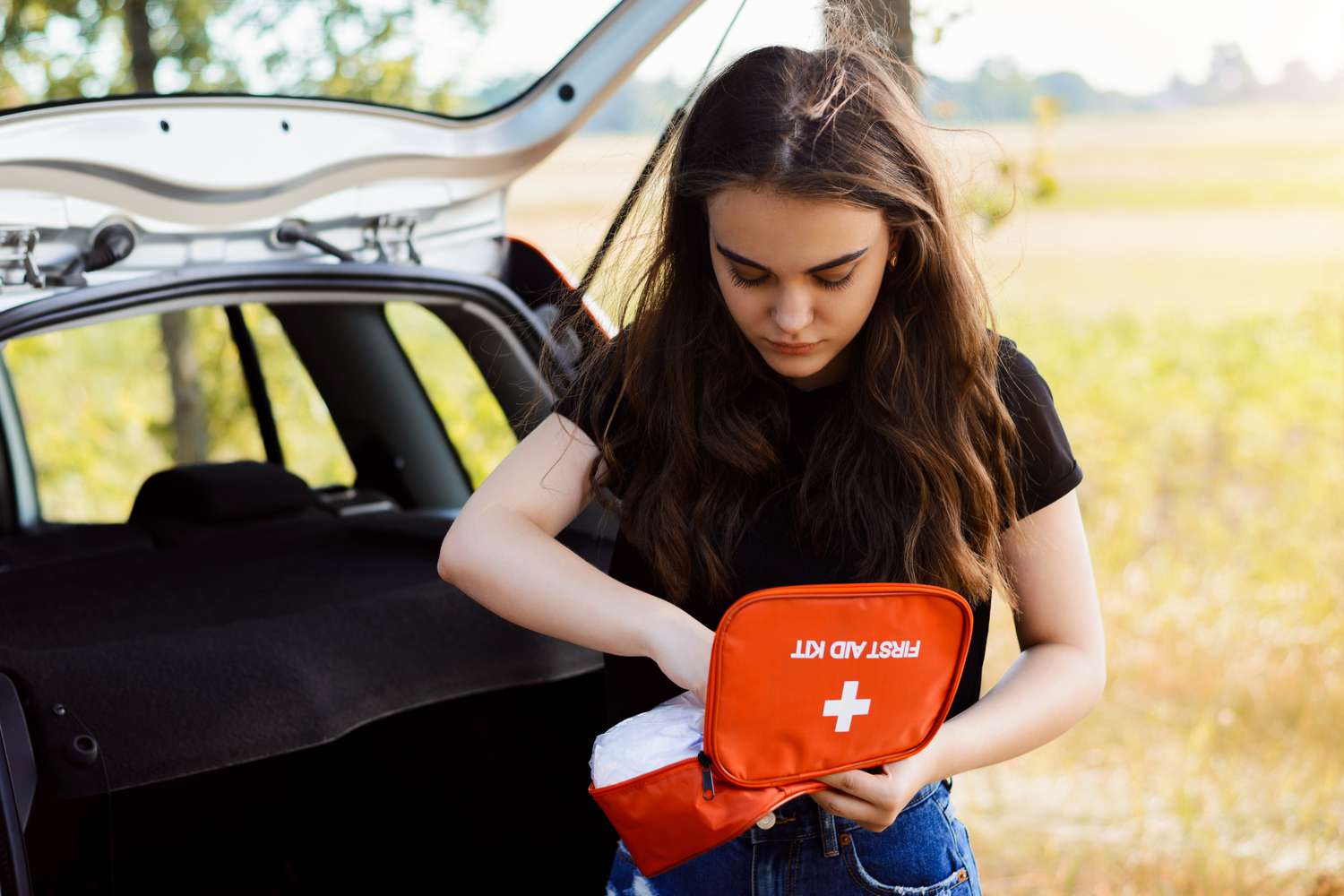

Bathroom Accessories
What To Put In A First Aid Kit For A Car
Modified: August 17, 2024
Ensure you're prepared for any emergency on the road with our comprehensive guide on what to include in a car first aid kit. From bandages to bathroom accessories, we've got you covered.
(Many of the links in this article redirect to a specific reviewed product. Your purchase of these products through affiliate links helps to generate commission for Storables.com, at no extra cost. Learn more)
Bandages
Bandages are an essential component of any well-prepared first aid kit for a car. They serve as a versatile tool for covering and protecting wounds, preventing infection, and promoting the healing process. When it comes to selecting bandages for your car first aid kit, it's crucial to consider various types to address different types of injuries and wounds that may occur while on the road.
Read more: What To Put In A College First Aid Kit
Adhesive Bandages
Adhesive bandages, commonly known as "band-aids," are a staple in any first aid kit. They are ideal for minor cuts, scrapes, and blisters. These bandages are designed with an adhesive backing that adheres securely to the skin, providing a protective barrier against dirt and bacteria. Look for a variety of sizes to ensure you can adequately cover different wound sizes.
Gauze Rolls
Gauze rolls are indispensable for managing larger wounds or providing support for sprains and strains. They are highly absorbent and can be used to apply pressure to control bleeding. Additionally, gauze rolls can be used to secure dressings in place or create a makeshift sling in the event of a minor fracture or sprain.
Sterile Gauze Pads
Sterile gauze pads are designed to be placed directly on wounds to absorb blood and other fluids while protecting the injury from contamination. They are available in various sizes to accommodate different wound sizes and can be secured in place with adhesive tape or rolled gauze.
Elastic Bandages
Elastic bandages, often referred to as compression bandages, are crucial for providing support to injured joints, such as ankles, wrists, and knees. They help reduce swelling, provide stability, and promote healing for sprains and strains. The elasticity of these bandages allows for a snug yet comfortable fit, making them an essential addition to your car first aid kit.
Read more: What To Put In A Sports First Aid Kit
Triangular Bandages
Triangular bandages serve multiple purposes, including creating slings for arm injuries, stabilizing dislocated joints, and providing support for head injuries. Their versatility makes them a valuable asset in addressing a wide range of injuries that may occur while traveling.
By including a variety of bandages in your car first aid kit, you can be better prepared to address a diverse array of injuries and emergencies that may arise on the road. Remember to regularly check and replenish your bandage supplies to ensure they are ready for use when needed.
Key Takeaways:
- Be prepared for any injury on the road by including bandages, gauze pads, adhesive tape, antiseptic wipes, antibiotic ointment, tweezers, scissors, instant cold packs, non-latex gloves, and a first aid manual in your car kit.
- Keep your car first aid kit stocked with versatile supplies like bandages, gauze pads, adhesive tape, antiseptic wipes, antibiotic ointment, tweezers, scissors, instant cold packs, non-latex gloves, and a first aid manual for any unexpected situation.
Gauze pads
Gauze pads are a fundamental component of a well-equipped car first aid kit, offering versatility and effectiveness in managing various types of wounds and injuries. These sterile, absorbent pads are designed to be placed directly on wounds to absorb blood and other fluids while providing a protective barrier against contamination. When it comes to addressing injuries on the go, gauze pads play a crucial role in promoting proper wound care and aiding in the healing process.
In the event of a minor cut, scrape, or abrasion, gauze pads serve as a reliable tool for controlling bleeding and protecting the wound from external elements. Their sterile nature ensures that the wound is shielded from potential contaminants, reducing the risk of infection. Additionally, the absorbent quality of gauze pads helps to maintain a clean and dry environment around the wound, which is essential for optimal healing.
One of the key advantages of gauze pads is their versatility in accommodating wounds of various sizes. They are available in different dimensions, allowing for effective coverage of small to moderately sized injuries. This adaptability makes gauze pads suitable for addressing a range of wounds, from minor cuts and scrapes to larger abrasions and lacerations.
Furthermore, gauze pads can be securely held in place using adhesive tape or rolled gauze, ensuring that the dressing remains intact and provides continuous protection to the wound. This feature is particularly beneficial when dealing with injuries in a mobile environment, such as during travel or while on the road.
In addition to their primary role in wound care, gauze pads can also be utilized in conjunction with antiseptic solutions or antibiotic ointments to facilitate proper wound cleaning and application of medication. This further enhances their effectiveness in promoting a hygienic and conducive environment for wound healing.
By including gauze pads in your car first aid kit, you are better equipped to address a wide range of injuries and emergencies that may occur while traveling. Their reliability, versatility, and ability to promote proper wound care make them an indispensable component of any well-prepared first aid kit for the road. Regularly checking and replenishing your supply of gauze pads ensures that they are readily available for use when needed, providing peace of mind and practical support during unexpected situations.
Adhesive tape
Adhesive tape is a vital component of a car first aid kit, serving as a versatile and essential tool for securing dressings, immobilizing injured areas, and providing support in emergency situations. This adhesive tape, commonly known as medical tape, is designed to adhere securely to the skin and various surfaces, offering reliable and effective wound care support while on the go.
One of the primary functions of adhesive tape is to secure bandages, gauze pads, and other dressings in place over wounds and injuries. Its strong adhesive properties ensure that the dressing remains firmly attached, preventing it from shifting or coming loose during movement. This is particularly important in a mobile environment, such as in a car, where the risk of dressings becoming dislodged due to vehicle motion is higher.
In addition to securing dressings, adhesive tape plays a crucial role in immobilizing injured areas, such as fingers, wrists, or ankles, to prevent further damage and promote healing. By providing stability and support, the tape helps reduce movement in the affected area, minimizing the risk of exacerbating the injury during transit or while awaiting professional medical assistance.
Furthermore, adhesive tape can be utilized to create makeshift splints or supports for minor fractures or sprains, offering temporary stabilization and comfort until proper medical attention can be obtained. Its flexibility and adherence make it a valuable resource for addressing a variety of musculoskeletal injuries that may occur during travel.
When selecting adhesive tape for a car first aid kit, it is important to consider factors such as hypoallergenic properties, breathability, and ease of application. These considerations ensure that the tape is suitable for use on different skin types and can provide optimal comfort and support to the injured individual.
By including adhesive tape in your car first aid kit, you are better prepared to address a wide range of injuries and emergencies that may arise while on the road. Its reliability, versatility, and ability to provide secure support make it an indispensable component of any well-prepared first aid kit for travel. Regularly checking and replenishing your supply of adhesive tape ensures that it is readily available for use when needed, offering practical support and peace of mind during unexpected situations.
Antiseptic wipes
Antiseptic wipes are a crucial inclusion in a car first aid kit, offering a convenient and effective means of disinfecting and cleaning minor wounds and injuries while on the go. These pre-moistened wipes are saturated with antiseptic solutions, typically containing ingredients such as benzalkonium chloride or alcohol, which are known for their ability to kill bacteria and prevent infection.
When faced with a minor cut, scrape, or abrasion during travel, antiseptic wipes provide a quick and efficient method of cleansing the affected area. Their convenient single-use packaging and pre-saturated nature make them easily accessible and ready for immediate use, allowing for prompt and thorough wound cleaning without the need for additional supplies or water.
The antiseptic properties of these wipes help to eliminate bacteria from the wound site, reducing the risk of infection and promoting a hygienic environment for proper wound healing. This is particularly important in situations where access to soap and water may be limited, such as during road trips or outdoor activities, making antiseptic wipes an invaluable resource for maintaining wound care hygiene while on the move.
Furthermore, antiseptic wipes can be used to clean the surrounding skin near the injury, minimizing the risk of contaminants entering the wound during the healing process. By gently wiping the area around the wound, any dirt, debris, or potential sources of infection can be effectively removed, contributing to the overall cleanliness and protection of the injured area.
In addition to their primary role in wound cleaning, antiseptic wipes can also serve as a practical solution for sanitizing hands and surfaces in emergency situations. Their versatility extends beyond wound care, making them a multi-functional asset in addressing various hygiene and disinfection needs that may arise during travel.
By including antiseptic wipes in your car first aid kit, you are better prepared to address minor injuries and maintain proper wound care while on the road. Their convenience, effectiveness, and ability to promote hygienic practices make them an essential component of any well-equipped first aid kit for travel. Regularly checking and replenishing your supply of antiseptic wipes ensures that they are readily available for use when needed, offering practical support and peace of mind during unexpected situations.
Read more: What To Put In A Travel First Aid Kit
Antibiotic ointment
Antibiotic ointment is a critical addition to any car first aid kit, providing a valuable resource for promoting wound healing and preventing infection in the event of minor injuries while on the road. This specialized ointment contains active ingredients such as bacitracin, neomycin, and polymyxin B, which work together to combat bacteria and create an optimal environment for the body's natural healing processes.
When applied to minor cuts, scrapes, and burns, antibiotic ointment serves as a protective barrier, guarding the wound against harmful bacteria and reducing the risk of infection. Its ability to create a shield over the injured area helps to minimize exposure to external contaminants, promoting a clean and hygienic environment essential for proper wound healing.
In addition to its protective function, antibiotic ointment also supports the body's natural healing processes. By creating an ideal healing environment, the ointment facilitates the regeneration of skin cells and tissues, aiding in the prompt closure of the wound. This can contribute to faster recovery and reduced scarring, enhancing the overall healing outcome for minor injuries sustained during travel.
Furthermore, the soothing and emollient properties of antibiotic ointment can provide relief from discomfort and pain associated with minor wounds. Its moisturizing effect helps to prevent the wound from drying out, promoting a conducive environment for healing and reducing the likelihood of scab formation, which can impede the healing process.
When selecting antibiotic ointment for a car first aid kit, it is essential to consider factors such as the ointment's shelf life, hypoallergenic properties, and compatibility with different skin types. These considerations ensure that the ointment remains effective and suitable for use in various situations, providing optimal support for wound care needs while traveling.
By including antibiotic ointment in your car first aid kit, you are better prepared to address minor injuries and promote proper wound healing while on the road. Its protective, healing-enhancing, and soothing properties make it an indispensable component of any well-equipped first aid kit for travel. Regularly checking and replenishing your supply of antibiotic ointment ensures that it is readily available for use when needed, offering practical support and peace of mind during unexpected situations.
Tweezers
Tweezers are an indispensable tool in a car first aid kit, offering precision and versatility in addressing various medical situations that may arise while traveling. These small, handheld instruments, typically made of stainless steel, are designed to grasp and extract foreign objects from the skin, making them essential for managing splinters, glass shards, or other debris that may become embedded in the skin during outdoor activities or accidents.
The fine, pointed tips of tweezers enable users to carefully grip and remove foreign bodies from the skin with accuracy, minimizing the risk of further injury or contamination. Their precise design allows for controlled and targeted extraction, making them particularly effective in situations where delicate handling is required, such as removing small splinters or thorns.
In addition to foreign body removal, tweezers can also be utilized for various first aid procedures, such as applying and positioning small dressings or wound closures. Their dexterity and grip make them valuable for handling sterile materials and ensuring that dressings are accurately placed over wounds, providing essential support for proper wound care.
Furthermore, tweezers can aid in the removal of ticks, a common concern during outdoor activities or travel to wooded areas. The fine tips of the tweezers allow for the precise grasping and extraction of ticks from the skin, reducing the risk of leaving behind mouthparts or causing additional irritation to the affected individual.
When selecting tweezers for a car first aid kit, it is important to choose a high-quality, stainless steel option with a fine, pointed tip for optimal precision and durability. Additionally, considering the size and portability of the tweezers ensures that they can be easily stored and accessed when needed, making them a practical and efficient addition to the first aid kit.
By including tweezers in your car first aid kit, you are better prepared to address a wide range of medical situations and provide essential support for wound care and foreign body removal while on the road. Their precision, versatility, and ability to facilitate delicate procedures make them an invaluable component of any well-equipped first aid kit for travel. Regularly checking and replenishing your supply of tweezers ensures that they are readily available for use when needed, offering practical support and peace of mind during unexpected situations.
Scissors
Scissors are an essential tool in a car first aid kit, offering a versatile and practical solution for addressing a wide range of medical and emergency situations that may arise while traveling. These handheld cutting instruments, typically featuring two pivoted blades and handles, serve multiple purposes, making them indispensable for providing efficient and precise assistance in various scenarios.
One of the primary functions of scissors in a first aid kit is the ability to cut bandages, gauze, and medical tape to the required size and shape for dressing wounds and injuries. Their sharp and precise blades enable users to tailor dressings to fit specific wound sizes, ensuring optimal coverage and protection. This capability is particularly valuable in situations where standard-sized dressings may not be suitable, allowing for customized wound care based on individual needs.
In addition to dressing preparation, scissors can be utilized for cutting clothing or fabric to access and assess injuries, especially in emergency situations where prompt medical attention is required. Their cutting efficiency enables quick and safe removal of clothing to facilitate the examination and treatment of injuries, providing essential support for first responders and individuals providing immediate assistance.
Furthermore, scissors play a crucial role in managing various medical supplies and equipment within the first aid kit. They can be used to open packaging, cut adhesive tape, or trim bandages, ensuring that necessary items are readily accessible and prepared for use. Their versatility in handling different materials and items contributes to the overall efficiency and functionality of the first aid kit, enabling swift and effective response to medical needs.
When selecting scissors for a car first aid kit, it is important to choose a durable, stainless steel option with sharp blades and comfortable handles for ease of use. Additionally, considering the size and portability of the scissors ensures that they can be conveniently stored and accessed when needed, making them a practical and essential addition to the first aid kit.
By including scissors in your car first aid kit, you are better prepared to address a wide range of medical situations and provide essential support for wound care, dressing preparation, and emergency response while on the road. Their versatility, precision, and ability to facilitate efficient procedures make them an invaluable component of any well-equipped first aid kit for travel. Regularly checking and replenishing your supply of scissors ensures that they are readily available for use when needed, offering practical support and peace of mind during unexpected situations.
Instant cold pack
An instant cold pack is a vital component of a car first aid kit, offering a convenient and effective means of providing immediate cold therapy for minor injuries and pain relief while on the go. These single-use packs are designed to rapidly generate cold temperatures when activated, making them an invaluable resource for addressing sprains, strains, bruises, and other minor musculoskeletal injuries that may occur during travel.
When activated, an instant cold pack undergoes a chemical reaction that quickly lowers its temperature, creating a cold sensation that helps reduce swelling, alleviate pain, and minimize tissue damage associated with acute injuries. This rapid cooling effect is particularly beneficial in the initial management of injuries, as it can help limit inflammation and provide immediate relief to the affected area.
The portability and ease of use of instant cold packs make them practical for addressing injuries during travel, outdoor activities, or sports events. Their compact size and single-use nature allow for convenient storage and accessibility, ensuring that cold therapy can be promptly administered when needed. This accessibility is especially valuable in situations where immediate treatment of minor injuries is essential for promoting comfort and facilitating the healing process.
Furthermore, instant cold packs do not require refrigeration or pre-freezing, making them a convenient and reliable solution for providing cold therapy in various environments. Their ability to generate cold temperatures on demand eliminates the need for external cooling sources, allowing for quick and efficient application of cold therapy without the logistical challenges associated with traditional ice packs.
By including instant cold packs in your car first aid kit, you are better prepared to address minor musculoskeletal injuries and provide immediate pain relief while on the road. Their rapid cooling effect, portability, and ease of use make them an essential component of any well-equipped first aid kit for travel. Regularly checking and replenishing your supply of instant cold packs ensures that they are readily available for use when needed, offering practical support and peace of mind during unexpected situations.
Always include basic first aid items such as bandages, gauze, antiseptic wipes, adhesive tape, and scissors in a car first aid kit. Additionally, consider adding emergency blankets, a flashlight, and a basic first aid manual.
Read more: What To Put In A Hiking First Aid Kit
Non-latex gloves
Non-latex gloves are a crucial inclusion in a car first aid kit, providing a versatile and essential barrier for protecting both the injured individual and the caregiver during medical interventions while on the go. These gloves are specifically designed to offer a hypoallergenic alternative to latex gloves, catering to individuals with latex allergies or sensitivities, and ensuring universal accessibility and safety in emergency situations.
One of the primary functions of non-latex gloves is to create a protective barrier against potential contaminants and bodily fluids during wound care and medical procedures. Their durable and flexible nature allows for comfortable and secure hand coverage, reducing the risk of direct skin contact with blood, bodily fluids, or other potentially infectious materials. This protective barrier is essential for minimizing the transmission of pathogens and maintaining a hygienic environment during first aid interventions, promoting the safety and well-being of both the injured individual and the caregiver.
In addition to their protective role, non-latex gloves offer versatility in addressing various medical needs and emergencies that may arise during travel. They can be utilized for wound assessment, dressing changes, and other medical procedures, providing essential support for maintaining proper hygiene and infection control. Their universal design ensures that they can be safely used by individuals with latex allergies, as well as by caregivers who may have concerns about latex exposure, making them an inclusive and practical resource for addressing diverse medical situations.
Furthermore, non-latex gloves contribute to the overall preparedness and safety of the car first aid kit, ensuring that individuals providing assistance have access to essential protective equipment. Their presence in the first aid kit promotes a proactive approach to infection control and safety, empowering individuals to respond effectively to medical needs and emergencies while prioritizing the well-being of all parties involved.
When selecting non-latex gloves for a car first aid kit, it is important to consider factors such as size availability, durability, and ease of donning. These considerations ensure that the gloves are suitable for a wide range of hand sizes and can be quickly and comfortably worn when needed, making them a practical and essential addition to the first aid kit.
By including non-latex gloves in your car first aid kit, you are better prepared to address a wide range of medical situations and provide essential protection and infection control while on the road. Their hypoallergenic properties, versatility, and universal accessibility make them an indispensable component of any well-equipped first aid kit for travel. Regularly checking and replenishing your supply of non-latex gloves ensures that they are readily available for use when needed, offering practical support and peace of mind during unexpected situations.
First aid manual
A first aid manual is an indispensable resource in a car first aid kit, providing essential guidance and instructions for addressing a wide range of medical emergencies and injuries while on the road. This comprehensive reference serves as a valuable tool for individuals providing immediate assistance, offering clear and concise information on proper first aid procedures, injury assessment, and emergency response protocols.
The inclusion of a first aid manual in the car first aid kit ensures that individuals have access to reliable and standardized guidelines for managing various medical situations. From basic wound care and bandaging techniques to more complex scenarios such as cardiopulmonary resuscitation (CPR) and fracture stabilization, the manual equips users with the knowledge and confidence to respond effectively to unexpected emergencies.
Furthermore, the first aid manual serves as a valuable educational resource, providing essential information on recognizing signs and symptoms of common medical conditions, understanding appropriate interventions, and knowing when to seek professional medical assistance. Its informative content empowers individuals to make informed decisions and take prompt action in critical situations, potentially making a significant difference in the outcome of an emergency.
In addition to its instructional value, the first aid manual promotes preparedness and proactive planning for medical emergencies. Its presence in the car first aid kit encourages individuals to familiarize themselves with its contents, ensuring that they are equipped with the necessary knowledge and skills to respond to a diverse range of injuries and medical needs that may arise during travel.
Moreover, the first aid manual serves as a valuable reference for individuals with varying levels of first aid training and experience. Whether it is a seasoned healthcare professional or a layperson providing assistance, the manual offers standardized and evidence-based guidance, fostering consistency and best practices in emergency response.
By including a first aid manual in the car first aid kit, individuals are better prepared to address medical emergencies and provide essential support while on the road. Its comprehensive information, educational value, and role in promoting preparedness make it an indispensable component of any well-equipped first aid kit for travel. Regularly checking and updating the manual ensures that it remains a reliable and current resource, offering practical support and peace of mind during unexpected situations.
Frequently Asked Questions about What To Put In A First Aid Kit For A Car
Was this page helpful?
At Storables.com, we guarantee accurate and reliable information. Our content, validated by Expert Board Contributors, is crafted following stringent Editorial Policies. We're committed to providing you with well-researched, expert-backed insights for all your informational needs.
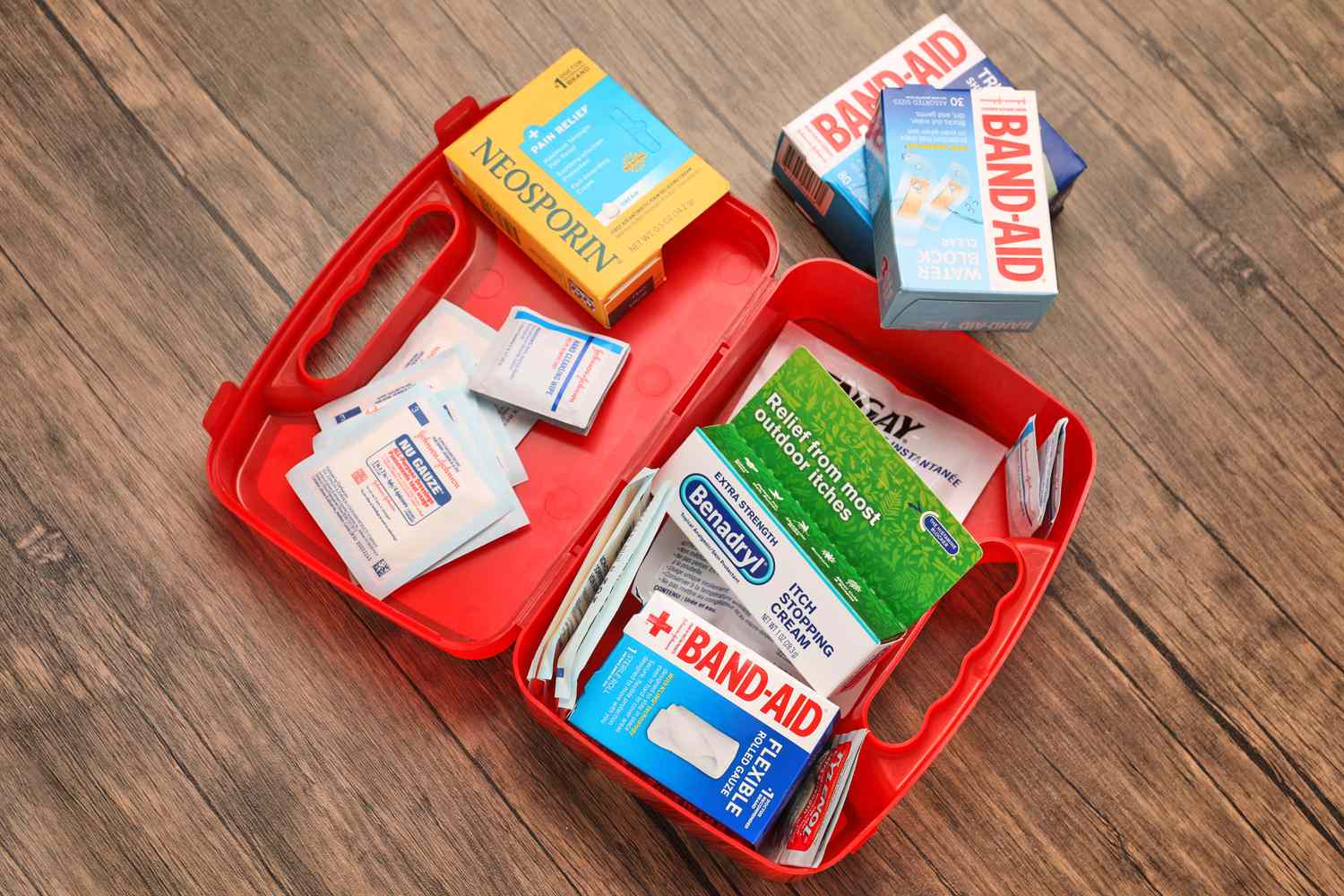
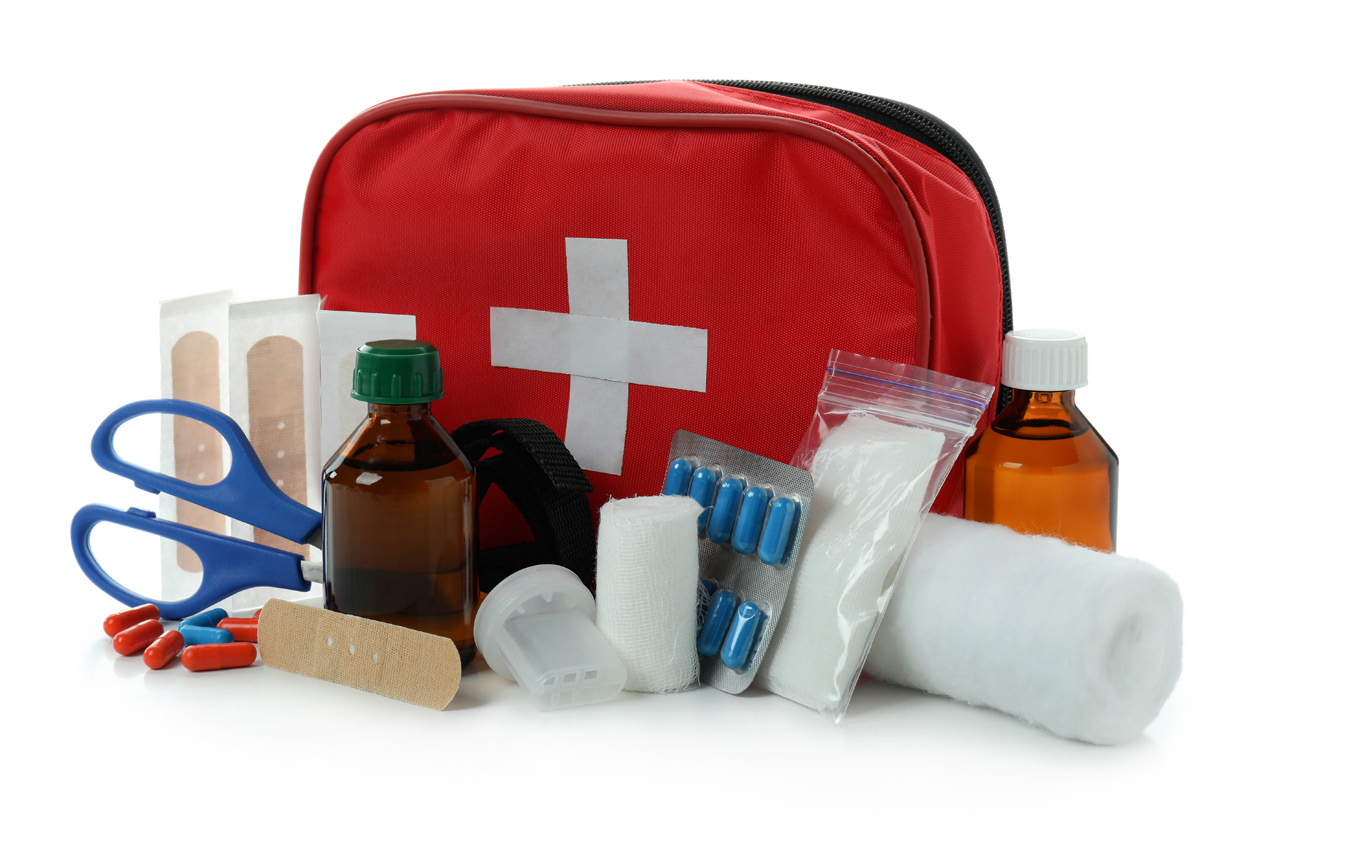
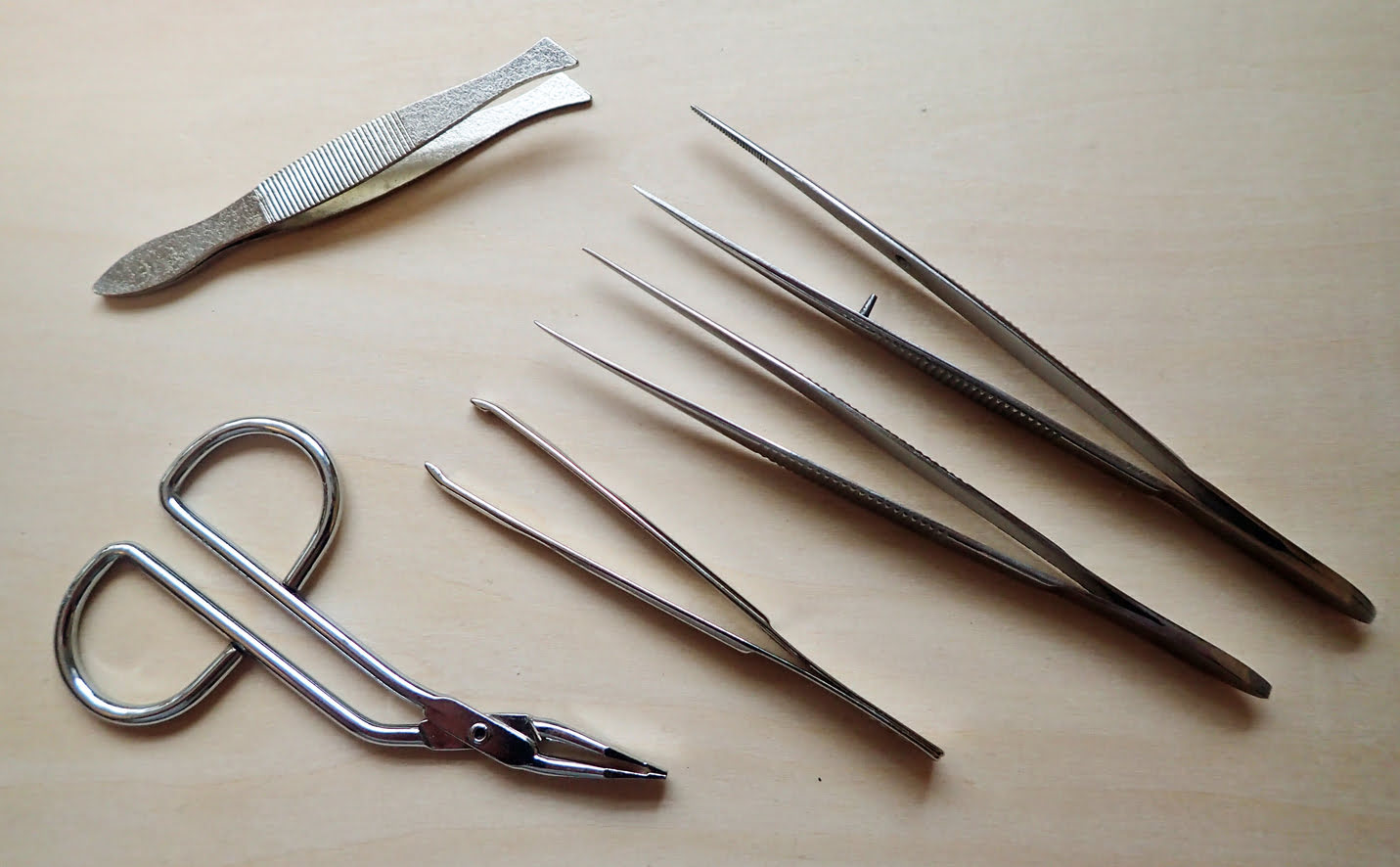
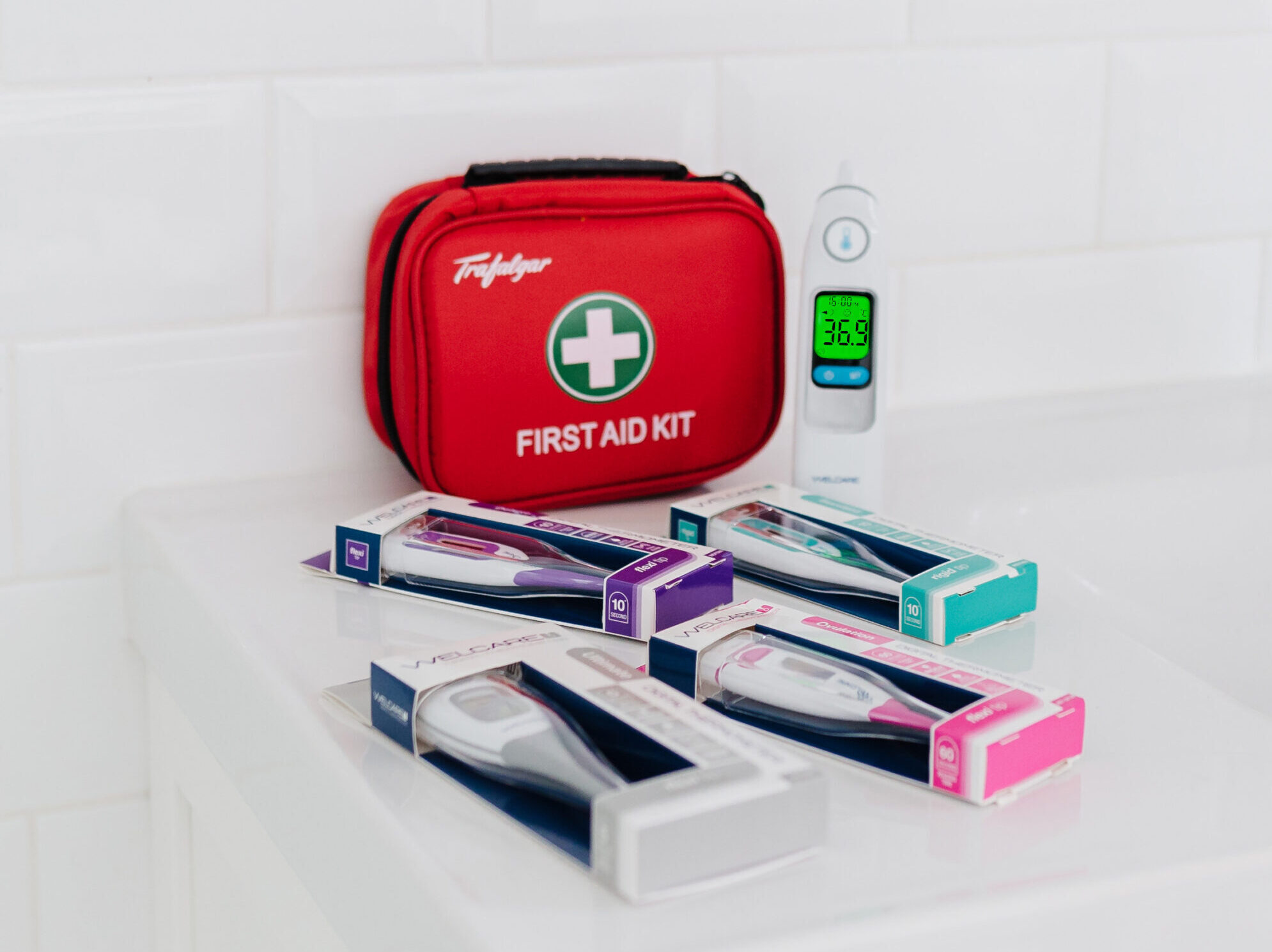
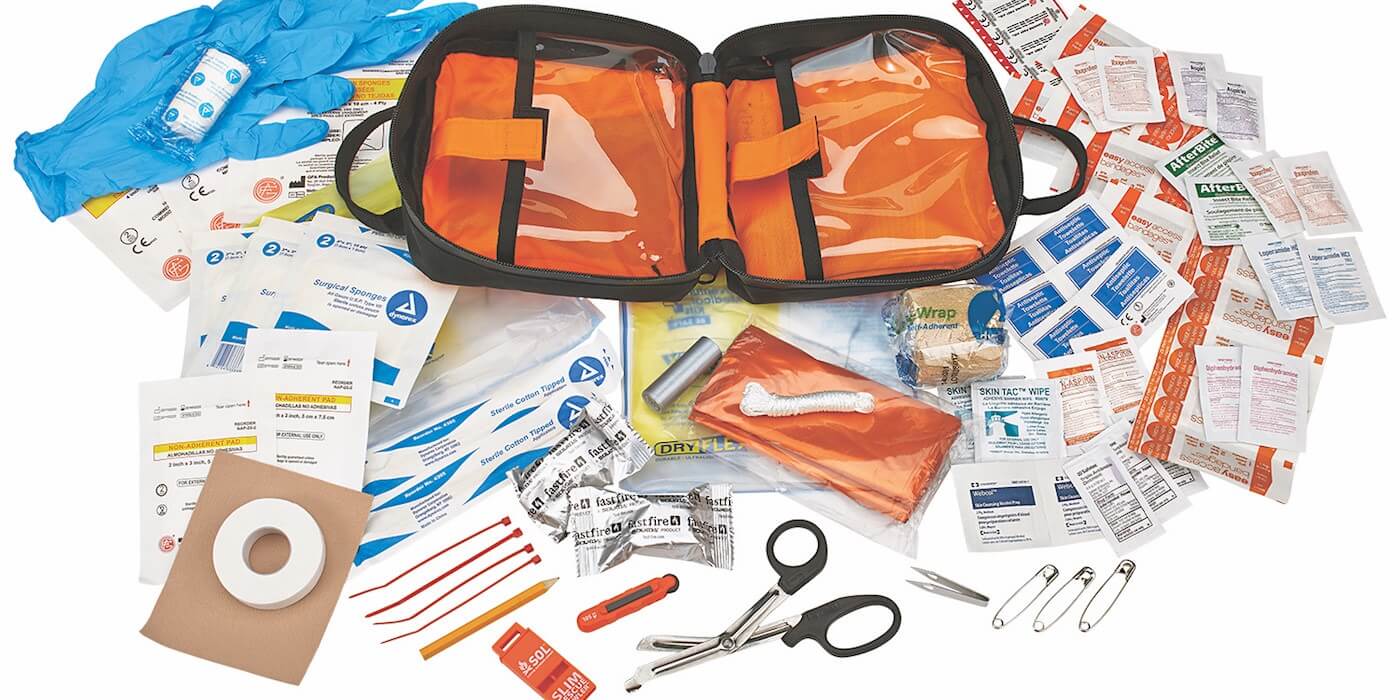
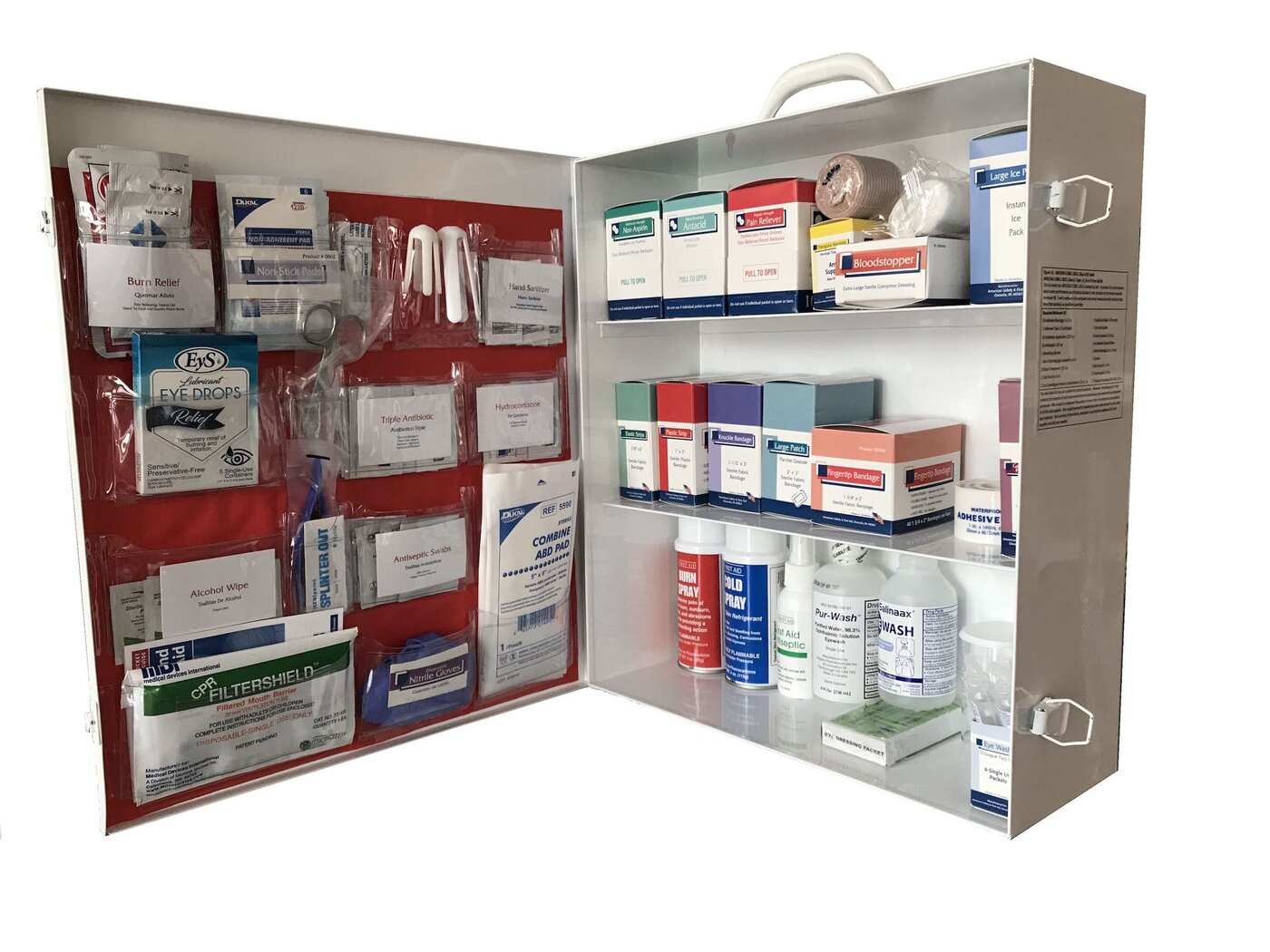
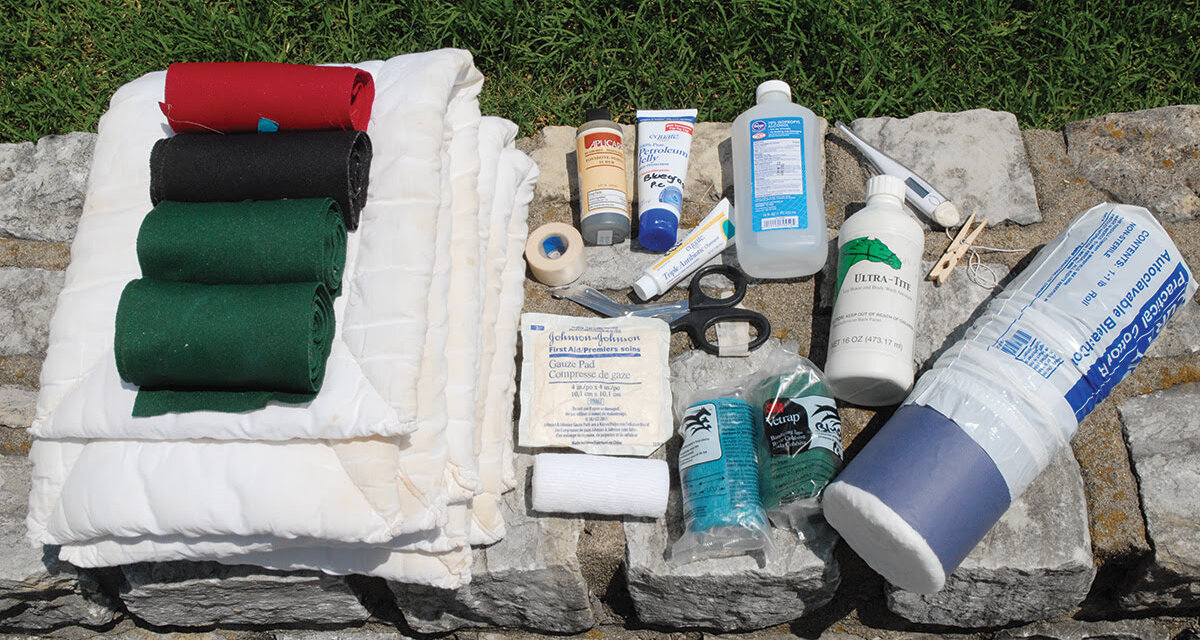
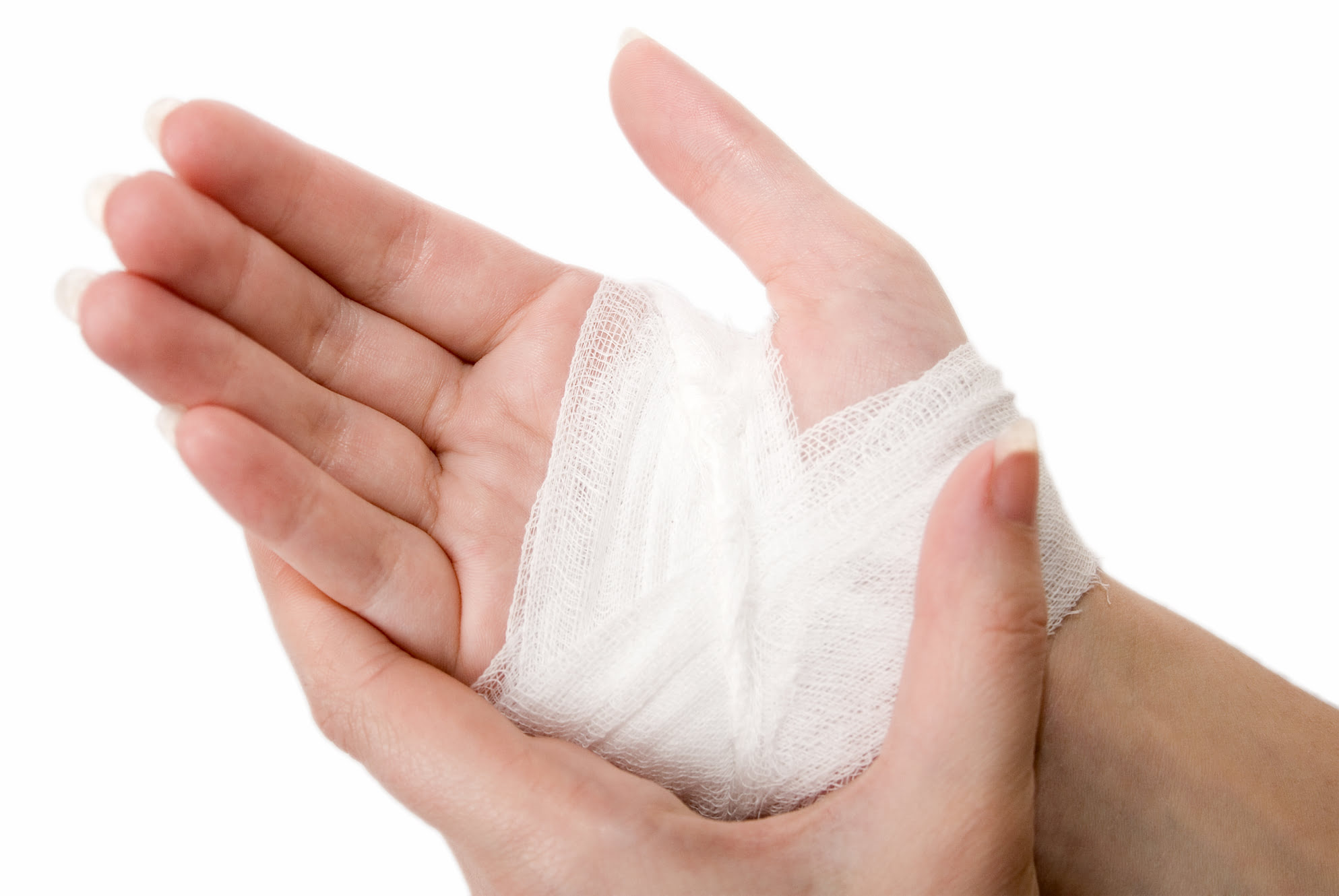
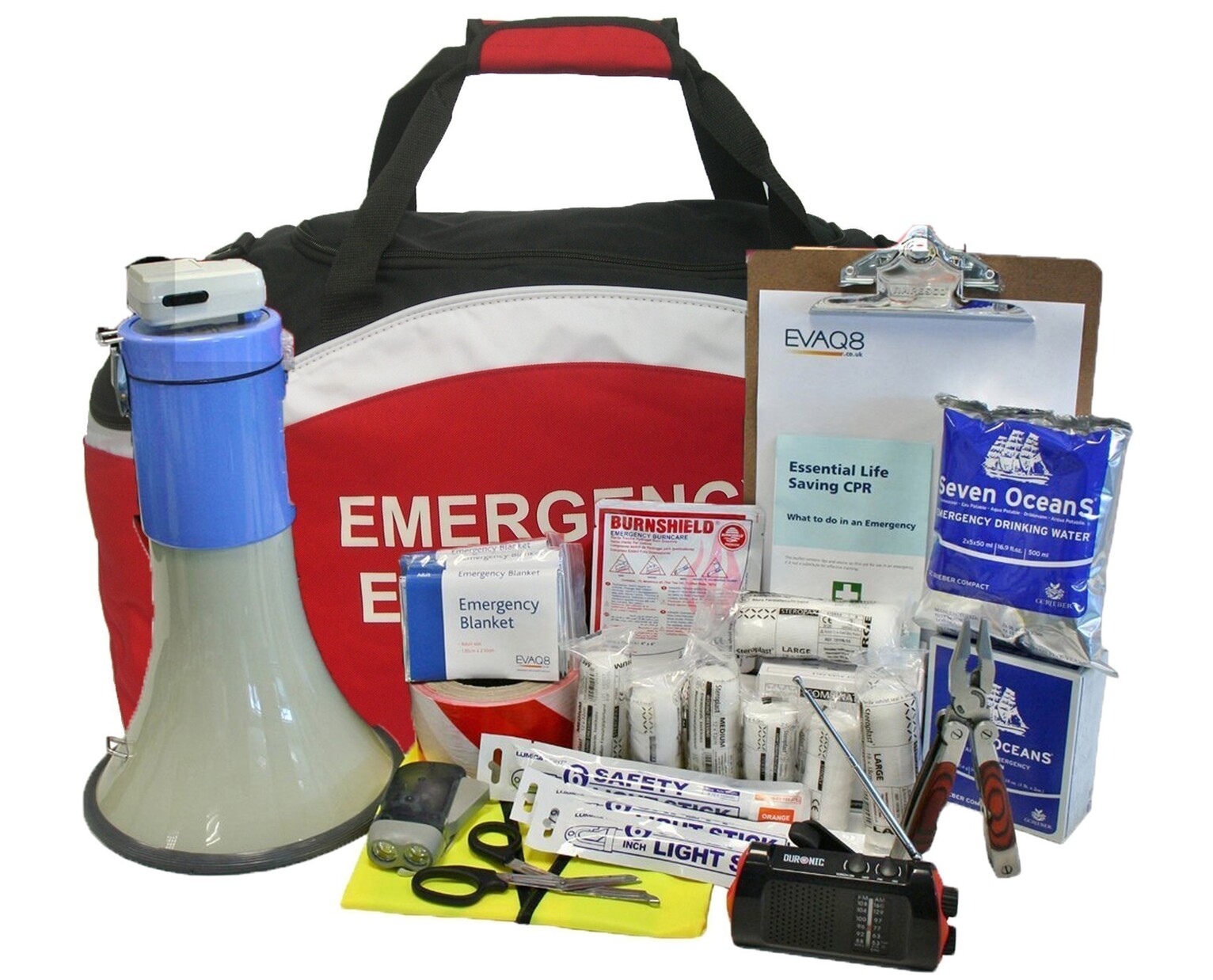
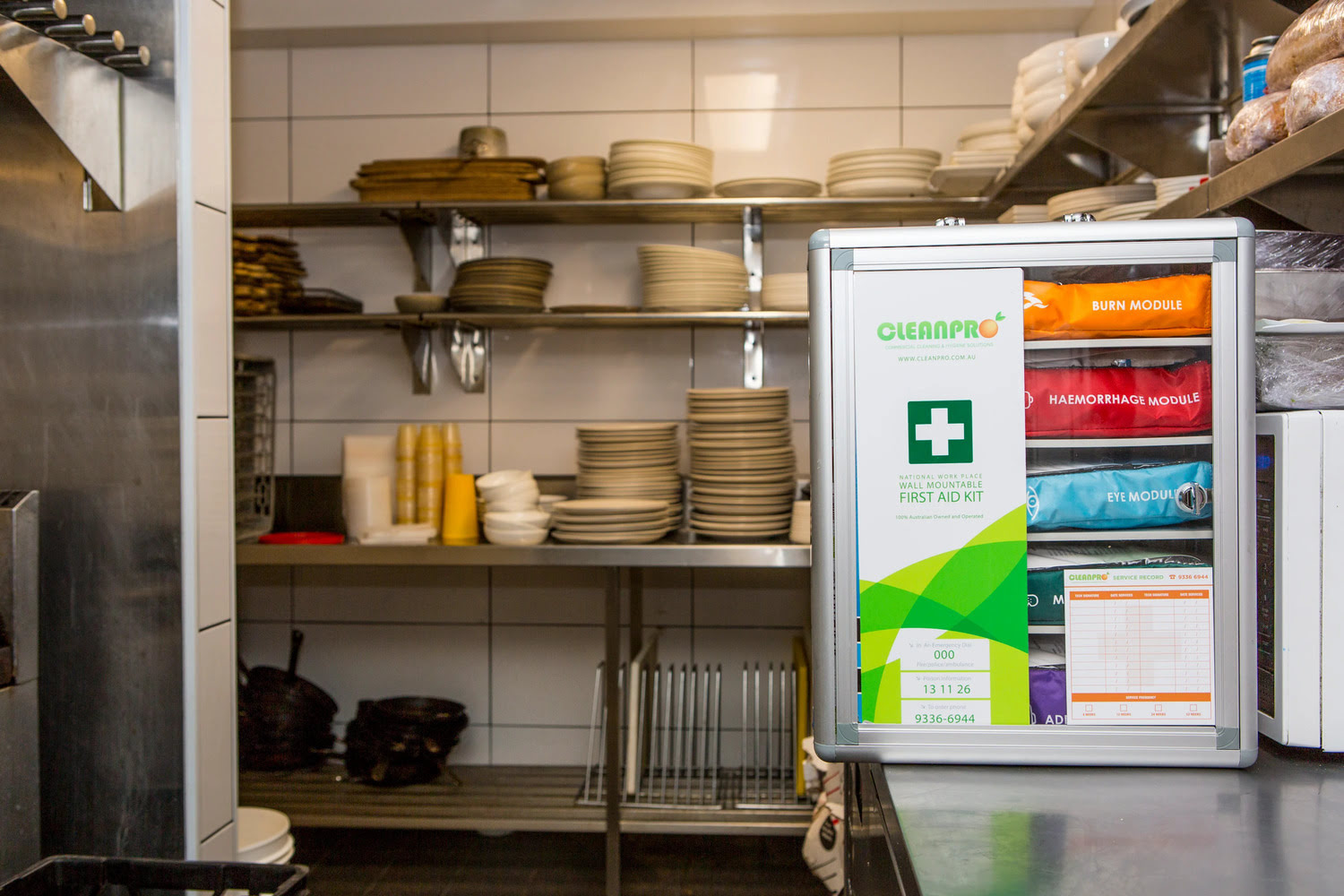
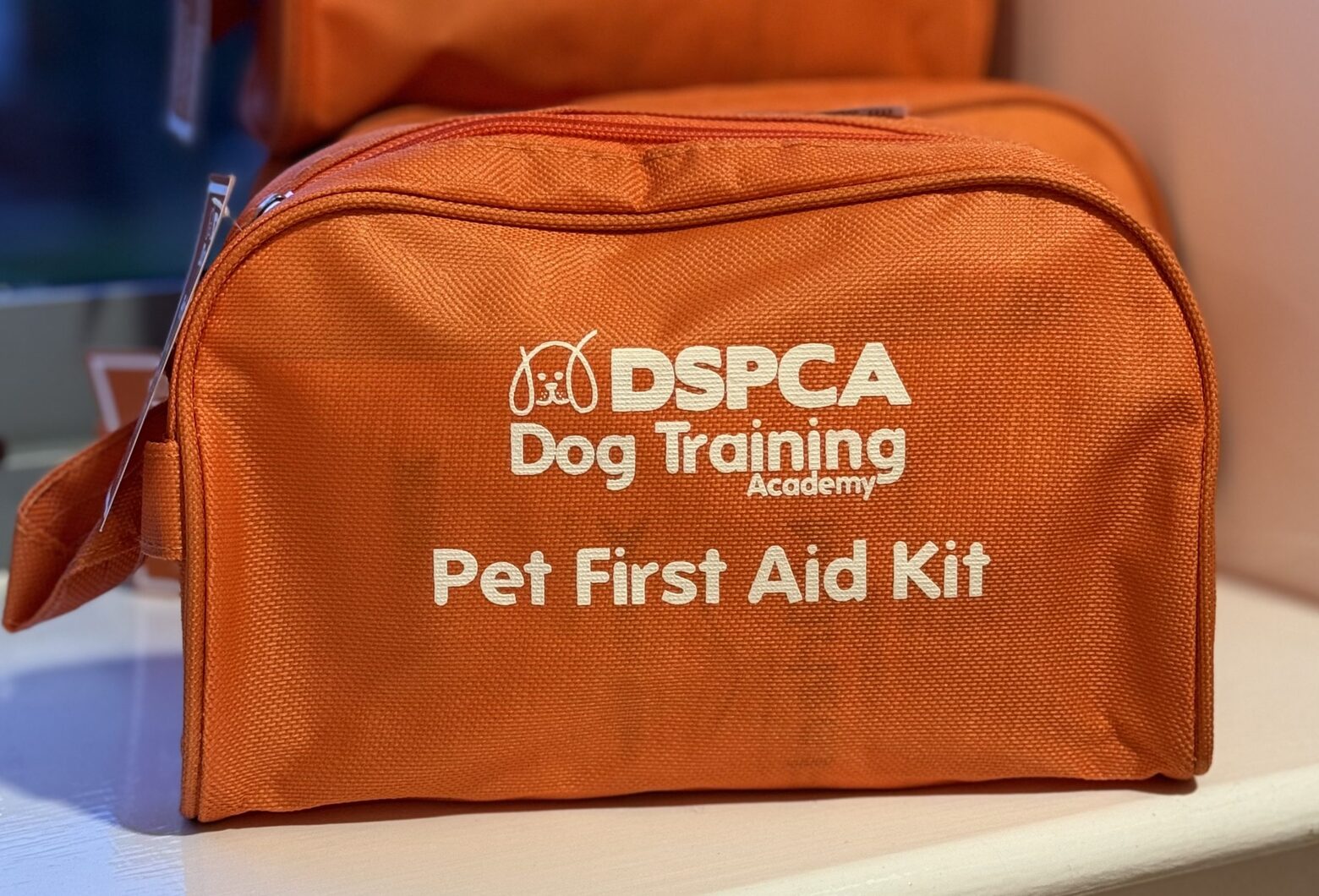
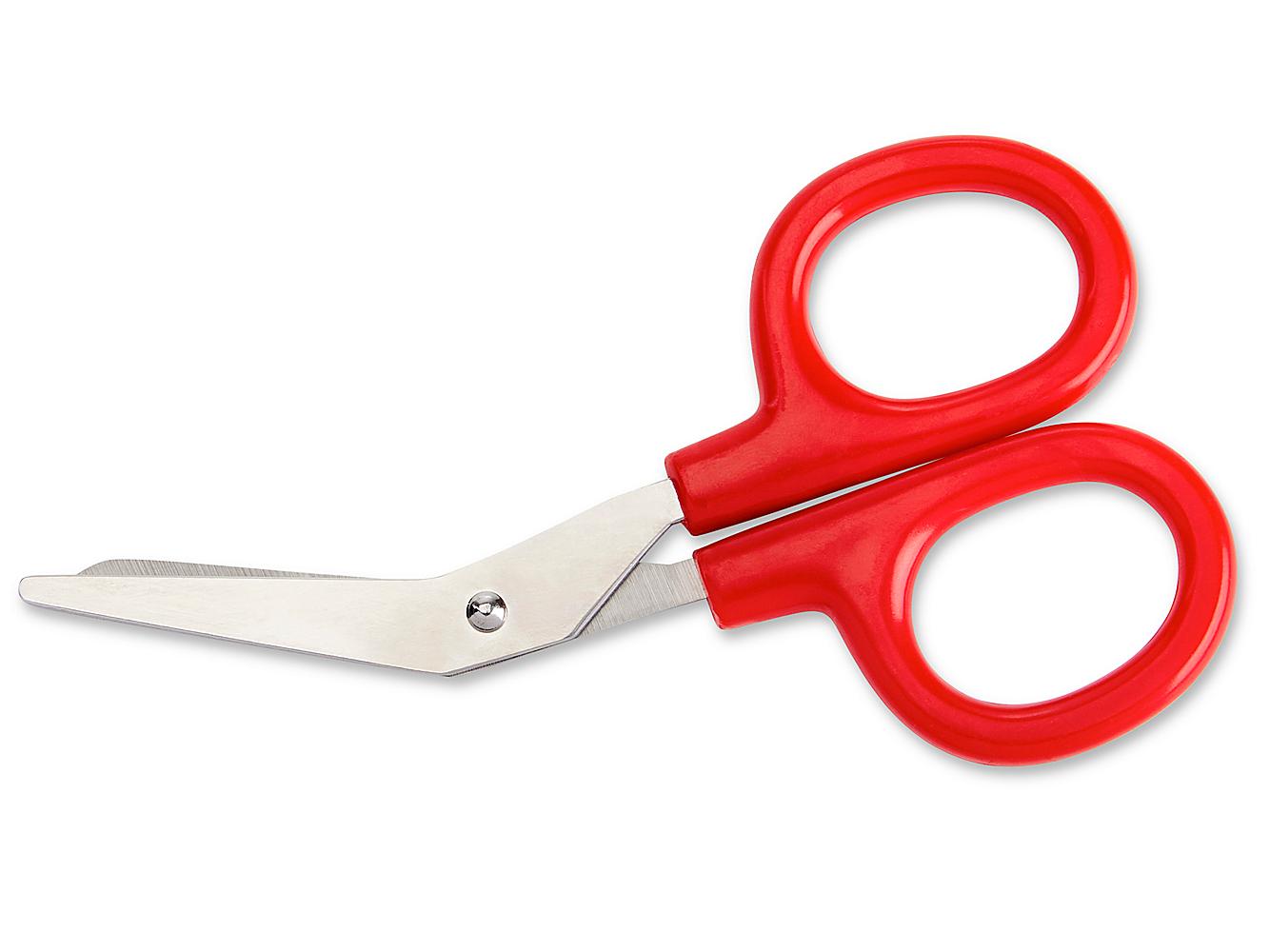

0 thoughts on “What To Put In A First Aid Kit For A Car”